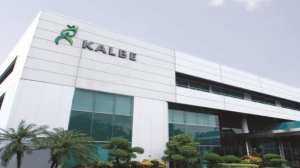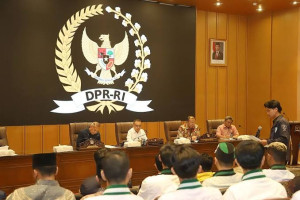RI launches first local CT scan factory, aims for global reach in medical tech
Indonesia has inaugurated its first domestically assembled Computed Tomography (CT) scanner production facility − a collaborated manufacturing between global medical technology giant GE HealthCare and Indonesian pharmaceutical firm Kalbe Farma.
Director General of Pharmaceuticals and Medical Devices at the Ministry of Health, Lucia Rizka Andalusia, said the collaboration marks a significant step toward reducing Indonesia’s dependency on imported medical devices.
The CT scanner plant is operated by PT Forsta Kalmedic Global, a subsidiary of Kalbe Farma. The company has been committed approximately Rp260 billion (US$16 million) to the facility.
President Director of Kalbe Farma, Bernadette Ruth Irawati Setiady, emphasized the strategic value of this investment. She noted that the factory is part of Kalbe’s long-term plan to develop and manufacture high-tech medical devices domestically.
“We began investing in this project two years ago, and the CT scanner is just the beginning. We plan to gradually enter the medical device sector with the hope that this will become a new growth engine in the future,” Irawati said on Monday, June 2, 2025.
The company also recently launched a portable X-ray device through its subsidiary, demonstrating its continued drive for innovation in healthcare technology.
GE HealthCare International CEO Elie Chaillot highlighted the broader impact of the partnership.
“This facility increases access to advanced diagnostic technology, creates high-value jobs, and supports the growth of Indonesia’s health tech workforce,” Chaillot said. “It also allows us to respond faster to local demand while maintaining the highest international standards.”
International goals
The Ministry of Health has set ambitious goals to produce three types of high-tech medical equipment domestically: CT scanners, Positron Emission Tomography (PET) scanners, and Magnetic Resonance Imaging (MRI) machines. Currently, all are fully reliant on imports, with CT scanner imports alone valued at nearly US$49 million (Rp800 billion) last year.
To encourage local manufacturing, the government is supporting the sector through regulatory facilitation, technology transfer, and marketing assistance. It is also implementing a “freeze and unfreeze” mechanism, which has proven effective in motivating manufacturers to localize production.
Chaillot also stressed the economic benefits of investing in diagnostic infrastructure.
“For every rupiah spent on diagnostic centers, the economic impact can reach up to 180 times. That shows just how transformative diagnostic devices can be for society,” he said.
Already have an account? Sign In
-
Start reading
Freemium
-
Monthly Subscription
20% OFF$29.75
$37.19/MonthCancel anytime
This offer is open to all new subscribers!
Subscribe now -
Yearly Subscription
33% OFF$228.13
$340.5/YearCancel anytime
This offer is open to all new subscribers!
Subscribe now







